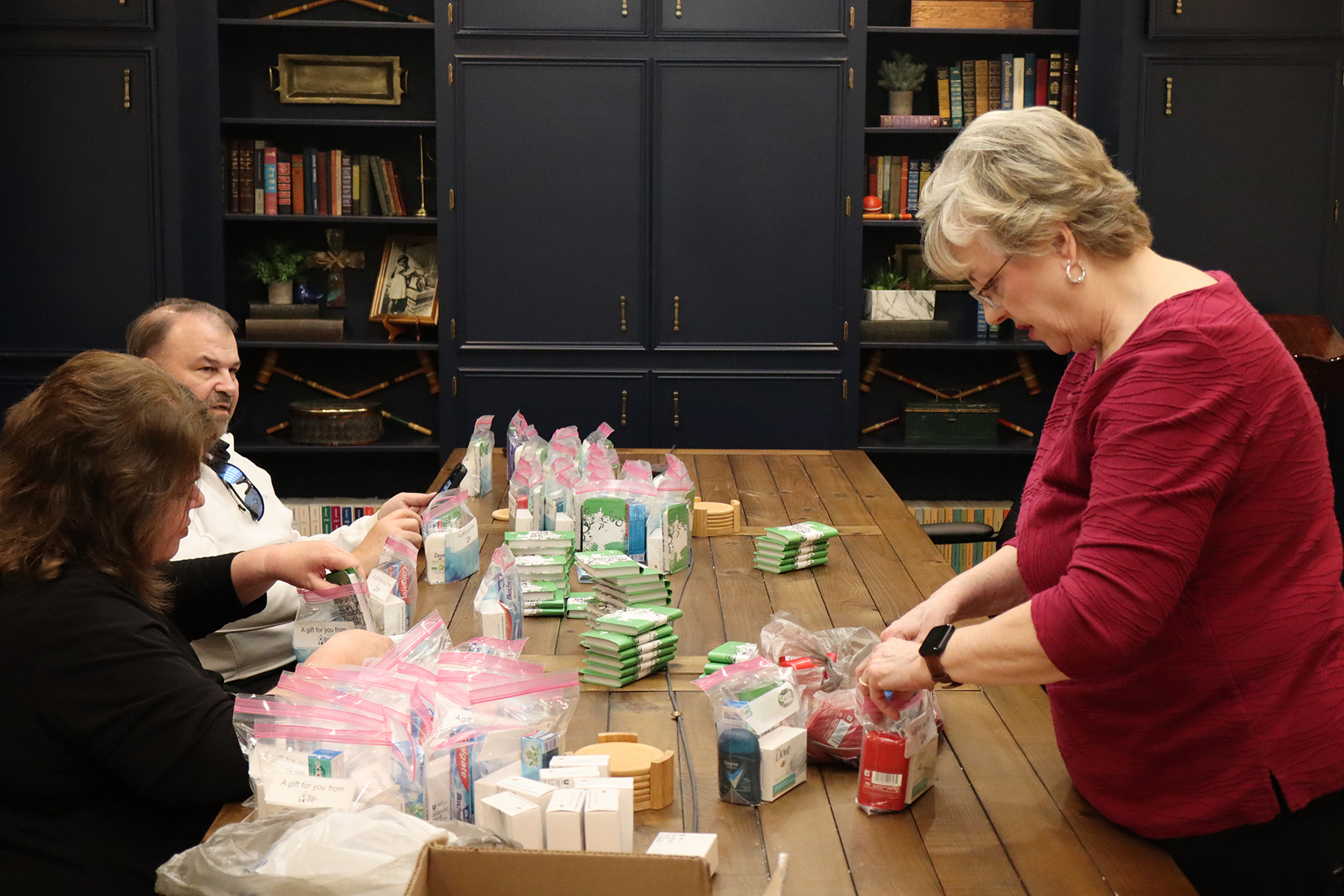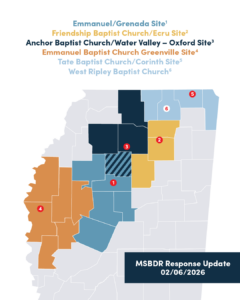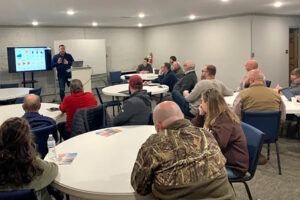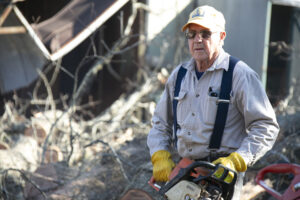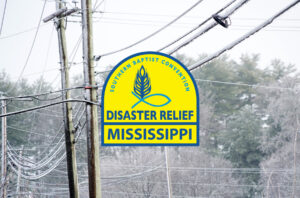By Lindsey Williams
Writing Specialist
Since taking root in 1897, the Mississippi Baptist Children’s Village (BCV) has grown into a vibrant, multi-program organization most notable for its Residential Child Caring Program, succeeding 128 years without government aid, through wars, pandemics, and economic recessions by the grace of God.
Children, aged 1 to 20, live on one of five campuses across Mississippi, with houseparents who model a healthy family lifestyle and provide as natural an environment as possible. The children attend public school and local churches, engaging in community activities as they consistently hear and see the Gospel of the God who reaches out to adopt into His everlasting family anyone who would accept Him as Savior and Lord.
When these children grow into their young adult lives, the BCV offers the Independent Living Program, which gives 20+ year olds not yet ready to live on their own resources and a place to come home to (for those continuing their education) until they are able to live independently. This, however, is not the only way the BCV meets the needs of Mississippi with a Christ-centered, trauma-informed approach.
In recent years, the BCV has expanded to include more residential and non-residential programs, including the In-Home Family Support Program. Interventionists in this non-residential program work with families at-risk of children being removed from the home. They identify the cause of issues, provide training and mentoring, and connect families with resources useful for addressing the causes.
Although poverty is often a factor, more times than not, families struggle with generational dysfunction. With this program, families learn how to engage with their children, prepare healthy meals, budget for the present and future, and establish healthy routines such as eating dinner at the table and talking about one’s day together. Most of all, it is an opportunity for interventionists to share the Gospel with broken families and connect them with local churches with whom they can build relationships.
Residential Family Program
Over time, interventionists in the In-Home Family Support Program recognized a need for single mothers and their children to retreat from unstable environments in order for change to occur, and thus the BCV became interested in starting the Residential Family Program. They began to communicate with and learn from similar programs in other state Baptist agencies. Gleaning from the experience of other agencies, a committee came together and formed the program.
Meanwhile, the BCV reopened their Waynesboro campus for the Residential Family Program in June, 2024, after two years of being unable to staff it for child-caring.
Hannah Humston, a former BCV family interventionist since 2022, transitioned to become the Residential Family Program manager in April, 2024. A Licensed Master Social Worker, Humston has followed God’s compassionate calling on her life to serve at-risk families and children. She and her team knew the Residential Family Program would be a big undertaking, with unique needs.
On a 12-to-18 month timetable, the Residential Family Program provides single mothers and children an opportunity to restart and receive support for a season, until they can get back on their feet and sustain their family.
“Day-to-day ministry is kind of crazy!” shared Humston with a laugh. “Right now, we have three families — three moms and six kids three years old and under — on our campus. On a ‘normal-ish’ day, my family-care specialists, Deborah and Patty, take the children to daycare at local churches, and take the moms who are employed to work. If the mothers aren’t working yet, they usually take them to apply for jobs or to appointments.
“When a mom first arrives,” Humston explained, “we help her sort out her Medicaid and make sure she and the children are up to date on doctor and dental visits. We also take them to Christian counseling to meet those needs, as well. Then after picking up the kids from daycare, our family-care specialists make dinner and everyone eats together, then the kids play outside, the women hang out and have fun, the children are readied for bed, and then we do it all over again the next day!
“We try to make the kids feel like they are in as normal an environment as possible, so we engage them with fun activities. Over the holidays, our family-care specialists took the families to see Christmas lights and watch parades. Since we have a lot of little kids here, it also feels like we’re always having a birthday party! Then on Sundays, the families go to church with our family-care specialists.
“On the case-management side of supporting them, I work with the moms on their ‘plan of care’, their individualized goals which we work toward, whether that’s saving money, getting a job, or anything of that nature. The moms also receive parenting education and financial literacy education as they gather those life skills necessary to provide for a family.”
Humston shared about one of the mothers on the campus, “When the mother came to us, she was due to have her baby about a month later. She and her older children were able to get settled before her due date, and when the day arrived, everything went really well at the hospital here and we were able to be there with her. She is very resilient and very strong, and was right back at it the next day, doing what she needed to do for her family.
“Her baby boy is healthy, her older children are well, and she’s working on applying for a job. She wants to be a teacher, so we are working on getting her into an online educational program that she can do while she’s with us. She is great with the kids and would be a wonderful teacher. Her goals are to be able to get a car, go back to school, and learn everything she needs to learn while she’s with us, so that she can provide for her family on her own and not have to be dependent on anybody else.”
When asked how MS Baptists can support the Residential Family Program, Humston suggested hosting drives at the church. The program is in constant need of baby wipes and diapers of every size, and any necessities quickly expended, such as paper-products. If you are local to the area of Waynesboro, volunteer! Any group willing to work the yard or building maintenance is greatly appreciated.
The program also has a desire to invite women adept in practical or special skills to teach the mothers on their expertise (i.e. a cooking class, budgeting, attending job interviews, or health talks from pediatricians, dentists, etc.) Contact Humston at hhumston@bcvms.com for more information.
“First and foremost,” Humston emphasized, “this is an opportunity for the moms to be reached with the Gospel and come to know the Lord. It’s also a safe space where they can intentionally focus on themselves and their children, able to leave after a year or year-and-a-half, and capable of taking care of their families and being in a better place than when they came to us.
“Everything that we do is a step toward independence for them. It’s not a shelter where they stay here indefinitely; it’s a holistic program which helps them make changes in their lives.”
One major prayer request Humston shared is that the program already has an overwhelming number of applications. Pray for more staff, more buildings, accessibility, and success as the program continues in its first year of operation. Serving at-risk families is an enormous need in Mississippi.
Youth Detention Intervention Program
Another new non-residential offering is the Youth Detention Intervention Program in which staff and trained volunteers enter five operational detention facilities in the state to share the Gospel with teenagers. The goal is to eventually have access to all 20 youth detention facilities in Mississippi. A unique ministry with unique needs, the program not only trains church members to share the Gospel, but also how to work within the realm of the detention facility and the rules which govern them.
Before moving under the umbrella of the BCV, the Youth Detention Intervention Program began as a result of a “Good News Bible Club” afterschool program at the Clinton YMCA. When Darron Byrd, now Program Director of the Youth Detention Intervention, and his team ministered to the fifth-and-sixth-graders, one of the counselors, a JSU student at the time, responded to the Gospel and came to faith in Christ. Soon after, the young man took a job at the Henley-Young-Patton Juvenile Justice Center in Hinds County, but continued to meet weekly with Byrd for discipleship. Each week, the young man told Byrd about the teenagers — aged 12 to 17 — and Byrd was shocked to learn that no outreach or evangelism ministry occurred there whatsoever.
As the Lord impressed this need upon Byrd and the young man, they walked through the credentials, background checks, and various processes necessary to begin outreach in Henley-Young. The ministry began in January, 2020, only a few short months before COVID caused a “roller coaster” of availability within the facility. Even so, Byrd began to see these young people respond to the Gospel, grow in discipleship, and even evangelize other teenagers in the detention center.
As the ministry grew, Byrd developed a strategy for recruiting volunteers from his church, Morrison Heights, to train and equip them to enter the facility. Before, Byrd and the volunteers were only granted a two-hour time slot of one day a week for outreach; now they are permitted 10 hours throughout five days of availability.
Two years later, Byrd reconnected with Sean Milner, Executive Director of the BCV and Byrd’s former attorney, whom he has known for 20 years. When Byrd shared about the ministry, Milner was instantly interested in converging this essential outreach program with the resources of the BCV. In December of 2022, the Youth Detention Intervention Program of the BCV was launched. Subsequently, the program was able to enlist additional churches and extend outreach into Yazoo County, Warren County, and Sunflower County.
Byrd spends much of his schedule meeting with pastors to promote ongoing ministry to local churches, training volunteers for the mission, and going into the facilities to build relationships and share the Gospel. Currently, the program has around 10 active volunteers working within five facilities, carrying out group evangelism and one-on-one discipleship, depending on the interest of the recipient.
In 2024 alone, the Youth Detention Intervention Program saw 41 young people make professions of faith through their outreach efforts.
“I had a young man whom I had not met before ask to meet with me when I was at Henley-Young a couple of years ago,” recounted Byrd. “He came in and sat down in front of the counselor’s desk I was using. He would hardly look up at me, and I asked him what I could do for him. He had tears rolling down his cheeks, and he just said, ‘I need God to forgive me for what I’ve done.’ He was 15 years old, and he was very broken over the crimes he had committed.”
After being walked through the Gospel, the young man prayed with Byrd to receive Christ. He was given a Bible, a devotion, and encouraged to grow in his faith. He soon began witnessing to others in the facility. Within four months, he had memorized 60 verses of Scripture which he wrote out in a notebook, with a notation under each describing what it meant to obey that verse.
“The young man received a 12-years sentence, and was moved to the Central Mississippi Correctional Facility Youth Offender Unit. Within one week of his relocation, he had already talked the warden into allowing him to start Bible studies for other guys,” said Byrd. “That’s just one of those testimonies of how God is rescuing these young people from the dominion of darkness, transferring them up to the Kingdom of His Son Who is the Light of the world.”
Byrd explained that the strategy necessary to accomplish the mission before them is based on Jesus’s commission to the disciples — to be witnesses for Him in Jerusalem, Judea, and Samaria; and to the uttermost parts of the earth.
“We started at ground zero in Hinds County and have been working our way out into these outlying areas. For each of these, we identify a community with a juvenile facility, establish a relationship with them, and communicate and meet with churches local to the area and help them to understand the ministry need,” explained Byrd.
The idea of going into a correctional facility — even a juvenile one — is intimidating to some churches. For that reason, the BCV comes alongside willing churches to prepare them for this unique ministry opportunity.
“We understand that this is not a VBS; it’s not your traditional ministry,” said Byrd. “So we try to equip churches, because we know God doesn’t call the equipped, He equips the called. Our role through the BCV is to be a service to the church, to equip the church for the work of ministry, which is the biblical principle for growing the church.”
Preparing volunteers for deployment involves four to six weeks of shoulder-to-shoulder, on-the-ground training with a BCV staff member. The BCV then helps the church get established in one of the juvenile facilities, developing their own relationship with the administration and staff. The ultimate goal of the training process is for the BCV to recede into a support role, providing a church with resources for ongoing outreach.
Once released from a juvenile facility, however, the chance of seeing repeated offenses is common, with Mississippi having a high recidivism rate. For that reason, the Youth Detention Intervention Program seeks to be a resource to a released child, as well as their family, to point them to a church and follow up with them in some capacity. Aftercare through the BCV is not court-appointed; therefore, it must be on a voluntary basis. For the teenagers genuinely desiring for God to change their lives, the ministry offers help with this new direction.
“The Scripture that came to mind the very first time I walked into a facility,” said Byrd, “was Matthew 9:36, ‘When Jesus saw the crowds, He had compassion on them, because they were harassed and helpless, like sheep without a shepherd.’ That Scripture propels us down the road of this outreach. We’re compelled by compassion to reach these kids where they are.”
If a church has interest in learning more, contact Byrd at dbyrd@bcvms.com. He is available to speak at churches about the Youth Detention Intervention Program and updates on the BCV as a whole.
God’s Provision Since 1897
Chrystelle Thames, Director of Communications and a BCV alumnus, remarked, “Today, the Baptist Children’s Village looks very different than it did in 1897, but it continues to receive 100% of our support from churches, individuals, and the Cooperative Program — no government funding since 1897. God has continued to use His people to provide for the different needs of children and families in Mississippi after all these years. Our Mississippi churches are so generous, and we receive more support in Mississippi than many of our sister agencies in other states around the country. It is extraordinary to see how God works through His church.”
The BCV is an agency of the Mississippi Baptist Convention Board and receives monies from the Cooperative Program budget. Learn more by emailing BCV Director of Communications Chystelle Thames at cthames@baptistchildrensvillage.org.

